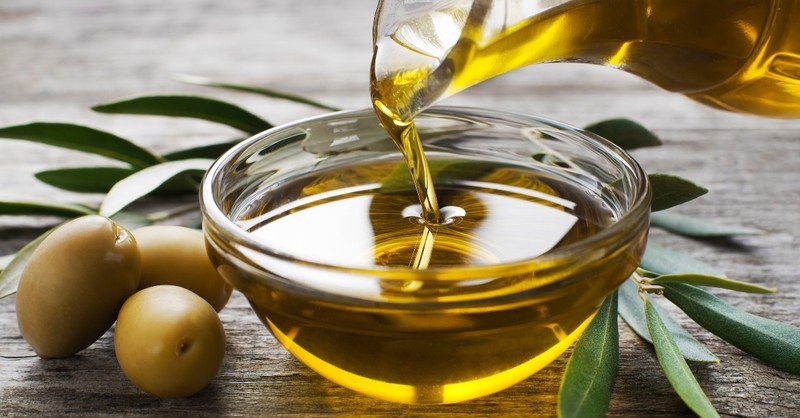
Among many soul-stirring and beautiful biblical narratives, the account of Mary Magdalene anointing Jesus during a dinner held in His honor is one to ponder (Matthew 26:6-13; Mark 14: 3-9; John 12:1-8). To anoint in a general sense means to pour or smear oil upon someone or something. Anointing is predominantly employed in a spiritual sense, and the context of its use tells us the significance of the anointing, as shown in the passages above.
Websters 1828 Dictionary defines anointing as, “to anoint the head with oil, as in Psalm 23:5. Here anointing seems to signify to communicate the consolations of the Holy Spirit.” Further, the dictionary adds, “The use of oil in consecrations, was of high antiquity. Kings, prophets, and priests were set apart or consecrated to their offices by the use of oil. Hence the peculiar application of the term, anointed to Jesus Christ.”
What Does It Mean to "Anoint" Something or Someone?
In a literal and general sense, to anoint someone or something means to consecrate them as special or marked for a cause. Christening a sea-going vessel before its maiden voyage is usually done by smashing a bottle of champagne against its bow. The ship has been anointed with champagne for “good luck.” (Just an aside, Christians don’t believe in “luck;” we champion faith in Christ.)
The biblical sense is the primary view we regard when defining anointing. In this meaning, then, anointing is being consecrated or made sacred and dedicated to God as shown by being dabbed with or having oil dripped on one’s head.
Photo credit: Public Domain (1919 illustration) via Wikimedia Commons

Where Do We See Anointing in Scripture?
Our first look at the act of anointing is when Jacob “took the stone that he had put under his head and set it up for a pillar and poured oil on the top of it” (Genesis 28:18). “Poured oil” here is the same as anointing. Jacob did this as an act of worship after God spoke to him in a dream and told him He was his God and He would give Jacob “the land on which you lie” and his offspring “shall be like the dust of the earth” (Genesis 28:13-14).
Other references to anointing occur in the following passages:
Exodus 29:36 - “And every day you shall offer a bull as a sin offering for atonement. Also you shall purify the altar, when you make atonement for it, and shall anoint it to consecrate it.”
Even sacrifices were presented to the Lord as holy unto Him before they were offered. This act also foreshadows the work of Christ on the cross, who took away our sins by His atoning sacrifice (Hebrews 9:13-10:4).
Exodus 40:15 - “You shall anoint them, as you anointed their father, that they may minister to Me as priests; for their anointing shall surely be an everlasting priesthood throughout their generations.”
The Lord God is giving His directives to Moses about the priesthood.
1 Samuel 16:12-13 - “And he sent and brought him in. Now he was ruddy and had beautiful eyes and was handsome. And the LORD said, ‘Arise, anoint him, for this is he. Then Samuel took the horn of oil and anointed him in the midst of his brothers. And the Spirit of the LORD rushed upon David from that day forward. And Samuel rose up and went to Ramah.’”
Samuel the priest was sent by God to anoint the second (and His chosen) king of Israel — David.
In a psalm penned by David, he describes brothers who dwell in unity as like “precious oil on the head, running down on the beard, on the beard of Aaron, running down on the collar of his robes” (Psalm 133:1-2).
The Lord Jesus, soon after He began His public ministry, entered a synagogue, and read aloud from the scroll of Isaiah. He read Isaiah 61:1-2, “The Spirit of the Lord is upon me, because he has anointed me to proclaim good news to the poor. He has sent me to proclaim liberty to the captives and recovering of sight to the blind, to set at liberty those who are oppressed, to proclaim the year of the Lord’s favor” (Luke 4:18-19). This is God in the flesh proclaiming Himself as Jesus Christ the Anointed One.
When Peter and John declared Jesus as the Christ to the “rulers of the people and elders” (Acts 4:8), they were told by the chief priests to not speak of Jesus (Acts 4:18). But when they were released, they went to the other believers and told them what transpired. They then all prayed together and said, “The kings of the earth set themselves, and the rulers were gathered together, against the Lord and against his Anointed” (Acts 4:26). In this passage, Anointed means Christ—The Christ.
Photo credit: ©Getty Images/dulezidar

Why Do People in the Bible Anoint with Oil?
In the biblical sense, the Lord God gave Moses special instructions for people and instruments used in offerings and worship (priests and the tabernacle’s furniture and utensils). The Lord God also provided Moses with the proper mixture for the anointing oil to be used to consecrate each (Exodus 30:22-33). God was explicit in His command, “You shall consecrate them [the furniture and vessels], that they may be most holy. Whatever touches them will become holy. You shall anoint Aaron and his sons, and consecrate them, that they may serve me as priests” (Exodus 30:29-30).
In cultural practice, this article points to these additional uses:
- It was common practice for the Hebrews to anoint the head of a visitor as a respectful welcome to their home.
- Anointing oneself with oil served as an energizing routine.
- Oil was applied to injuries for healing.
- A person in prayer or while fasting would anoint themselves with oil so as not to appear gloomy like the Pharisees (Matthew 6:16-18).
Why Is Anointing Such an Important Symbol?
To be anointed with oil meant the person had the Lord’s (or other person’s) favor, and it identified the person as such. They were to love and serve the Lord in fear and reverence, as are we. Plus, the Lord God commanded the Israelites to follow this procedure in perpetuity:
“And you shall say to the people of Israel, ‘This shall be my holy anointing oil throughout your generations. It shall not be poured on the body of an ordinary person, and you shall make no other like it in composition. It is holy, and it shall be holy to you. Whoever compounds any like it or whoever puts any of it on an outsider shall be cut off from his people’” (Exodus 30:31-33).
A stunning and revealing account of the importance of one who has been anointed by God is found in 1 Samuel 24. King Saul and his 3,000 men are on the hunt for David — to kill him. At one point, David and his men are hiding in a cave and Saul comes in to “relieve himself,” obviously unaware David and his men hid there. David surreptitiously cuts off a corner of Saul’s garment and immediately after, says to his men, “The LORD forbid that I should do this thing to my lord, the LORD’s anointed, to put out my hand against him, seeing he is the LORD’s anointed” (1 Samuel 24:5-6). It’s no wonder the Lord calls David “a man after His own heart” (1 Samuel 13:14).
Photo credit: ©Getty Images/Halfpoint

Should Christians Today Still Anoint with Oil?
Aside from a mention of how the twelve Apostles used oil to anoint the sick for supernatural healing in Mark 6:13, James 5:14 seems to be the only clear directive in the New Testament to anoint a person with oil for a specific purpose — healing. The verse reads, “Is anyone among you sick? Let him call for the elders of the church, and let them pray over him, anointing him with oil in the name of the Lord.”
Pastor Samuel Emadi points this out to us, “So what’s the point of anointing with oil? Likely, anointing with oil simply symbolizes consecration to God, as it often does elsewhere in Scripture (cf. Numbers 3:3; 1 Samuel 10:1; Psalm 89:20). Anointing with oil is a physical act expressing a spiritual truth: we belong to God and have committed ourselves wholly into his care. Prayer expresses this point with words; anointing with oil expresses that point in action.”
What we need to stress is our faith in God and the expectancy (not expectation) He will work however and whenever He deems the best for each situation. We should humbly pray in faith every time we pray (Romans 14:23). It’s an act of submission to God as we go to church elders (righteous men) and ask for their intercession.
The Protestant church will often symbolically anoint someone with oil for various reasons, including:
1. When a pastor is ordained, he is often anointed with oil as a symbol of his being set apart for ministry.
2. Pastors often anoint a new elder.
3. Pastors will sometimes anoint a couple on their wedding day.
As a Christian, the best anointing we receive is at conversion, when we know and surrender to Jesus Christ as Lord and Savior. The Apostle Paul tells us in 2 Corinthians 1:21-22, we (believers) are established in Christ and anointed by Him (as His). And he has sealed us with the Holy Spirit as a guarantee of who we are in Him. In this instance, the anointing is wholly spiritual and enacted by God Himself. We are a holy nation, a chosen race, and a royal priesthood for God’s use in His kingdom (1 Peter 2:9). He has anointed us as ambassadors (2 Corinthians 5:20) and all that position entails. But we are never alone as His anointed, for it’s His might that works so powerfully in us (Colossians 1:29).
Photo credit: Unsplash/Jon Tyson
Originally published Thursday, 15 June 2023.









